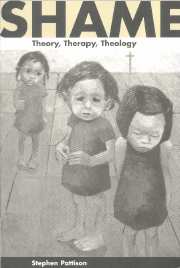Introduction
Published online by Cambridge University Press: 05 June 2012
Summary
Sin is respectable and highly poetical, shame is not.
(Ellmann 1987: 54)Shame itself is an entrance to the self. It is the affect of indignity, of defeat, or transgression, of inferiority, and of alienation. No other affect is closer to the experienced self. None is more central to the sense of identity. Shame is felt as an inner torment, a sickness of the soul. It is the most poignant experience of the self by the self, whether felt in the humiliation of cowardice, or in the sense of failure to cope successfully with a challenge. Shame is awound felt from the inside, dividing us both from ourselves and from one another.
(Kaufman 1985: ix–x)Writing at the end of the 1960s, the psychoanalyst Charles Rycroft asserted that shame was ‘the Cinderella of the unpleasant emotions, having received much less attention than anxiety, guilt, and depression’ (Rycroft 1972: 152). If this claim was justified at the time, it has been eroded over the last thirty years. A plethora of books with a huge variety of perspectives in disciplines ranging from literature, sociology and philosophy to various kinds of psychology has emerged on the topic of shame in recent times, especially in the USA. This particular Cinderella is now one of the main objects of attention at academic, cultural and clinical balls that consider the negative or shadow side of existence. Shame is recognised as a major phenomenon of the times, a basic and prevalent condition of individual and social life in late capitalist society (Lasch 1991; Giddens 1991).
- Type
- Chapter
- Information
- ShameTheory, Therapy, Theology, pp. 1 - 16Publisher: Cambridge University PressPrint publication year: 2000



